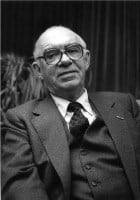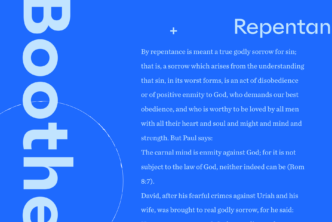Today’s guest post is written by Dr. Jim West. Dr. West is adjunct professor of biblical studies at the Quartz Hill School of Theology and pastor of Petros Baptist Church, Petros, Tennessee. He has written a number of books, including ‘Christ Our Captain’: An Introduction to Huldrych Zwingli, and numerous articles. He serves as language editor for the Scandinavian Journal of the Old Testament and language revision editor for the Copenhagen International Seminar.
The New Testament scholar Herman Ridderbos (1909–2007) will soon have many of his primary writings made available from Logos. These include The Coming of the Kingdom, Paul and Jesus: Origin and General Character of Paul’s Preaching of Christ, The Authority of the New Testament Scriptures, Bultmann, When the Time Had Fully Come: Studies in New Testament Theology, Paul: An Outline of His Theology, Studies in Scripture and Its Authority, The Gospel of John: A Theological Commentary, and Redemptive History and the New Testament Scriptures.
As readers can see quite easily, Herman Ridderbos contributed to our understanding of the Synoptic Gospels, Paul, and the Pauline epistles, along with the Gospel of John. Those contributions were neither ‘flash in the pan’ nor faddish in nature: they were substantive and meaningful and still, even now, very much worth reading. Especially worthy of notice are his volumes on the Kingdom and Paul’s theology, along with his little volume on Bultmann, which, though containing many points of disagreement, demonstrates that Ridderbos took the time to read, and ponder, the great Marburg Theologian’s ideas. Something that most Evangelicals cannot say of themselves or many of their mentors.
Ridderbos has been praised for his insightful work by many outstanding scholars. And he has been excoriated by others, who fail to grasp, I think, his overarching purpose and who instead focus on what they deem shortcomings. In other words, they wish Ridderbos to mirror their views instead of allowing him his own voice. A voice, it has to be said, which is very much worth hearing.
The opportunity to make use of Ridderbos’ works should not be ignored by anyone working in the Gospels or Paul. Anyone who can write the following deserves to be applauded for his courage and forthrightness:
“In recent decades the question of the authority of the Canon has again been brought to the fore in New Testament theology. It is often said now that the authority of the Canon is to be accepted because and in so far as God speaks to us in the books of the Canon. But in this very criterion “in so far as” lies the difficulty of the problem and the danger of subjectivism. Some wish to return to the essential content of the Gospel as the “Canon in the Canon.” They search for an incontestable objective measure within Scripture. Others protest that this is a too static interpretation of the Canon. God speaks—so they say—now here, and then again there, in Scripture. It is the preaching, the kerygma, they say, in which Scripture again and again shows itself as Canon. This actualistic concept of the Canon is interpreted by others in a still more subjectivistic manner: Canon is only that which here and now (hic et nunc) signifies the Word of God for me. For one like Ernst Käsemann, for instance, the Canon, as it lies before us, is not the Word of God nor identical with the gospel, but it is God’s Word only in so far as it becomes gospel. The question, what then is the gospel, cannot be decided through exposition of Scripture, but only through the believer who “puts his ear to Scripture to listen” and is convinced by the Spirit (cf. Käsemann, Evangelische Theologie, 1951–52, p. 21).
It is clear that on this approach the Canon of the New Testament as a closed collection of 27 books becomes a very problematical matter. Can we still hold fast to the creed of the Reformation: We accept all these books as holy and canonical? What basis remains for the Church to believe that God not only wishes to use the books of the Bible as a medium in which he speaks to us through the Holy Spirit, but that he wishes also to bind the Church to the Canon of the New Testament? Can we continue to call upon the self-evidence of Scripture? Or are additional considerations to be gathered out of Scripture itself whereby the place and significance of the Canon of the New Testament come to stand more plainly before us in the plan of God’s salvation? In the measure in which we lay emphasis upon the objectivity of the Canon upon Scripture as absolute authority, this question will have our attention.”
Ridderbos, Herman. “The Canon of the New Testament.” Revelation and the Bible: Contemporary Evangelical Thought, ed. Henry, Carl F. H. Grand Rapids: Baker, 1968; London: Tyndale, 1959. 191–192.






